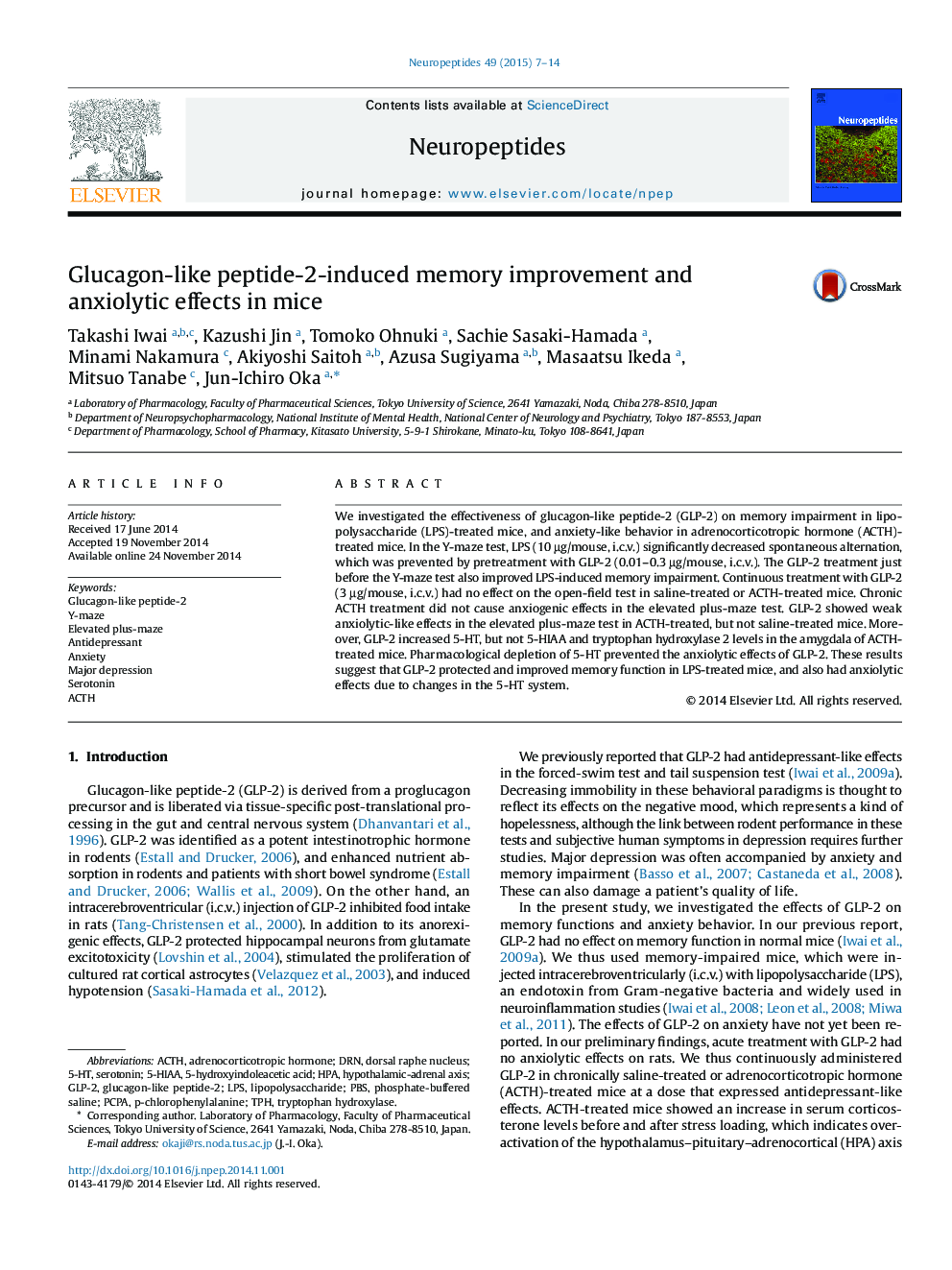| Article ID | Journal | Published Year | Pages | File Type |
|---|---|---|---|---|
| 2808021 | Neuropeptides | 2015 | 8 Pages |
•Pretreatment of GLP-2 prevented the development of memory impairment induced by LPS.•>GLP-2 improved the LPS-induced memory impairment.•>GLP-2 showed weak anxiolytic-like effects in ACTH-treated, but not saline-treated mice.•>GLP-2 increased 5-HT, but not 5-HIAA levels in amygdala.•GLP-2 influenced memory functions and had anxiolytic effects via the 5-HT system.
We investigated the effectiveness of glucagon-like peptide-2 (GLP-2) on memory impairment in lipopolysaccharide (LPS)-treated mice, and anxiety-like behavior in adrenocorticotropic hormone (ACTH)-treated mice. In the Y-maze test, LPS (10 µg/mouse, i.c.v.) significantly decreased spontaneous alternation, which was prevented by pretreatment with GLP-2 (0.01–0.3 µg/mouse, i.c.v.). The GLP-2 treatment just before the Y-maze test also improved LPS-induced memory impairment. Continuous treatment with GLP-2 (3 µg/mouse, i.c.v.) had no effect on the open-field test in saline-treated or ACTH-treated mice. Chronic ACTH treatment did not cause anxiogenic effects in the elevated plus-maze test. GLP-2 showed weak anxiolytic-like effects in the elevated plus-maze test in ACTH-treated, but not saline-treated mice. Moreover, GLP-2 increased 5-HT, but not 5-HIAA and tryptophan hydroxylase 2 levels in the amygdala of ACTH-treated mice. Pharmacological depletion of 5-HT prevented the anxiolytic effects of GLP-2. These results suggest that GLP-2 protected and improved memory function in LPS-treated mice, and also had anxiolytic effects due to changes in the 5-HT system.
